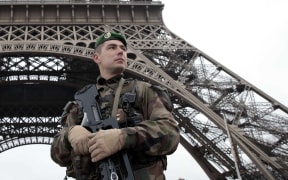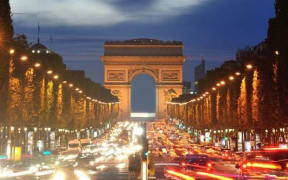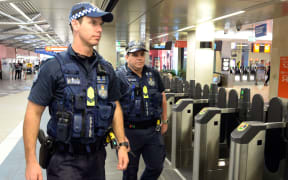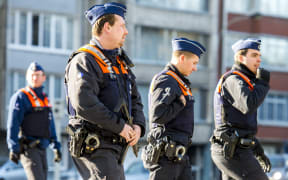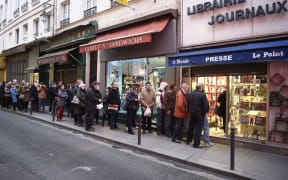Hundreds of people have gathered in western Sydney to protest against French satirical magazine Charlie Hebdo, which published an image of the Islamic prophet Mohammed after jihadists murdered 12 staff members.
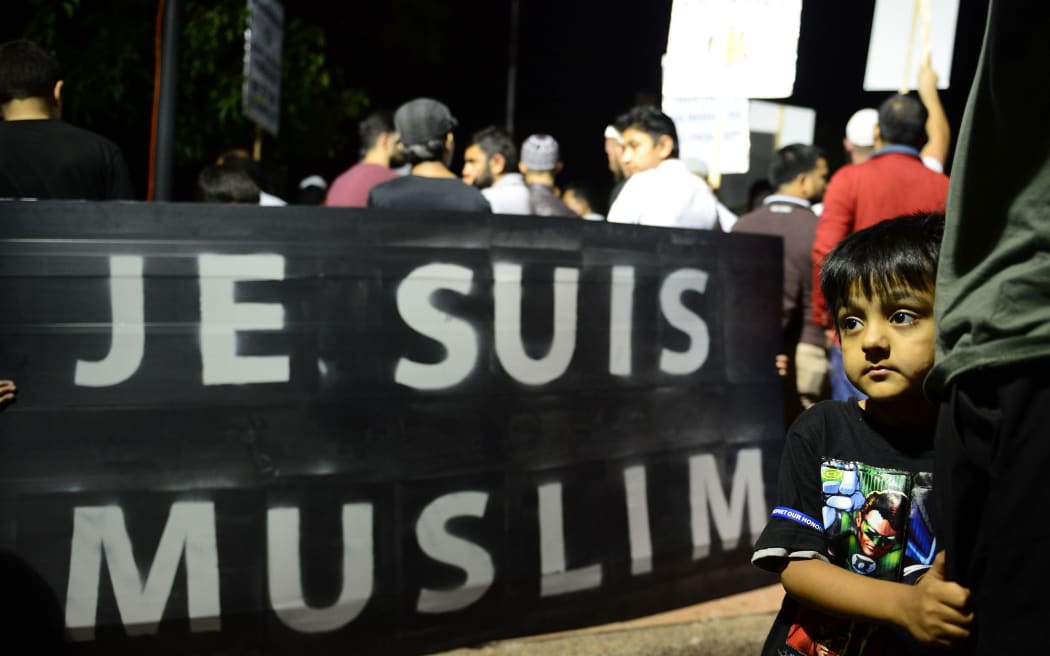
People gather during a rally to protest against negative coverage of Islam and French satirical weekly Charlie Hebdo's caricatures of the Prophet Mohammed, in Sydney. Photo: AFP
Police said about 800 people attended the rally, organised by controversial Islamic group Hizb ut-Tahrir outside the Lakemba railway station last night.
Four people were arrested and 10 were removed from the area for breaching the peace, Campsie Local Area Commander Superintendent Michael McLean said.
Many of the protesters held placards pledging their love for the Prophet Mohammed, who was depicted on the magazine cover holding a sign displaying the words "Je suis Charlie".
Hizb-ut-Tahrir spokesman Wassim Doureihi said Muslims had a duty to respond to the magazine.
"It is unacceptable for a Muslim to remain silent in the face of the attacks on our beloved prophet," he said.
One speaker at the rally, Sufyan Badar, took aim at what he called the arrogant West.
"They force their world view onto us: 'We are the arrogant West and you Muslims have to accept our world view, you have to accept our freedoms ... to insult your prophet'," he told the crowd.
He dismissed the defence of freedom of speech.
"We rejected freedom yesterday, we rejected freedom today and we reject your freedom tomorrow," he said.
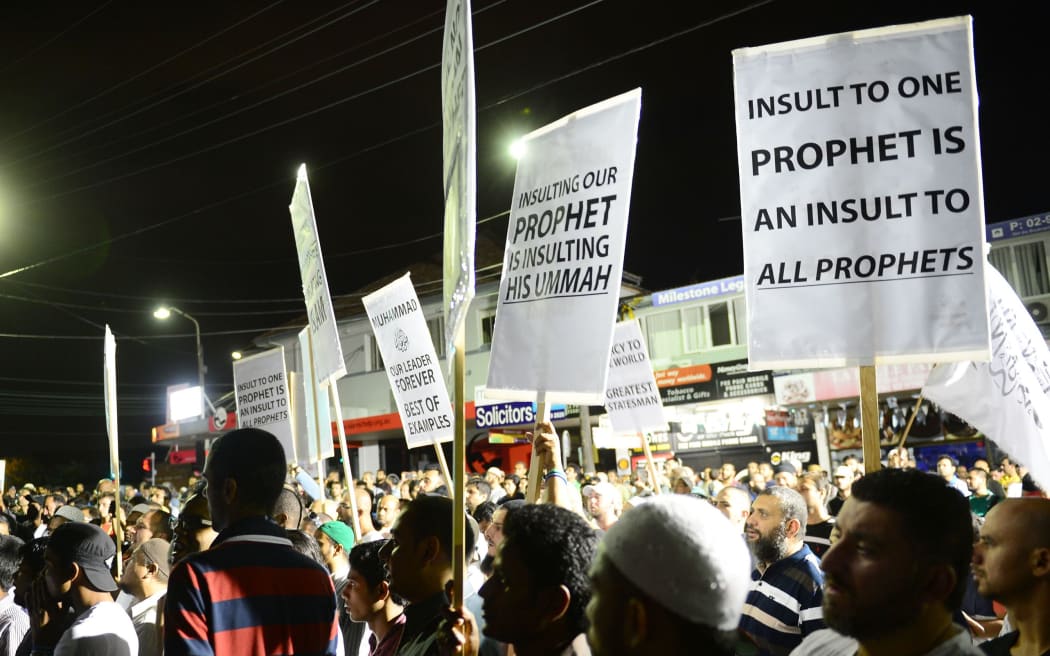
Members of Sydney's Muslim community at the protest. Photo: AFP
Superintendent Michael McLean said most people at the rally were well behaved, but a small number were handing out offensive material.
"I won't comment on whether they were for or against the cause," he said.
"I took a view that those people who were removed or moved on were being somewhat antagonistic and I took a view that perhaps their safety was at risk."
"Je suis Charlie" became a popular message of solidarity, widely shared on social media and quoted at demonstrations around the world after terrorists attacked the magazine's Paris offices in early January.
The "survivors' issue" of the magazine, which had a print run of five million, sold out within minutes at newsagencies across France and was the subject of strong demand in Australia.
It caused outrage in some parts of the world, including in the west African country of Niger, where at least 10 people were killed and dozens of churches were burned in response.
Protests across Asia
Meanwhile, tens of thousands people across Afghanistan, Pakistan and Muslim-majority Indian Kashmir took to the streets for southern Asia's biggest protests yet against Charlie Hebdo's cartoon portrayal of the Prophet Mohammed.
Up to 20,000 demonstrators in the western Afghan city of Herat and 15,000 in Pakistan's capital, Islamabad, burned French flags and chanted slogans calling for France's downfall, while a smaller Pakistani protest saw an effigy of France's President Francois Hollande set on fire.
In Srinagar, the largest city on the Indian-controlled side of the disputed region of Kashmir, police clashed with a contingent of around 3,000 demonstrators after shops and businesses were ordered to close by a leading Muslim organisation and several separatist groups.
The clashes broke out when police fired smoke canisters and shot into the air to disperse a group of protesters who began chanting "Down with Charlie Hebdo" after emerging from mosques.
-ABC/AFP
